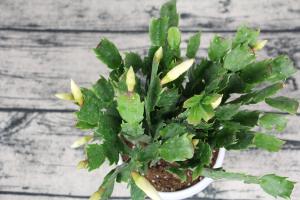When Should Tomatoes Be Planted in Denver?
Denver gardeners who are eager to grow their own tomatoes must first consider the planting timeline. In order to maximize the yield of their crops, they need to plant their tomatoes at the right time. The local climate and weather patterns in Denver make it an ideal location for growing tomatoes, but it is important to know the optimal planting dates.
Climate and Soil Conditions in Denver
Denver is located in the high plains of Colorado, so it has a semi-arid climate with low humidity and intense sunlight. The growing season starts in late April or early May and lasts until early October. The average temperature during the growing season is around 70°F, with daily highs ranging from 75°F to 85°F. The soil in Denver is generally alkaline and has a low organic matter content, so it is important to amend it with compost and other organic materials.
Factors to Consider When Planting Tomatoes
There are several factors to consider when planting tomatoes in Denver, including soil temperature, air temperature, and frost indicators. The optimal soil temperature for planting tomatoes is between 60°F and 65°F. The air temperature should be consistently above 50°F during the day and above 40°F at night. One of the biggest risks to tomato plants is frost, so it is important to know the last frost dates in Denver. In general, the last frost date in Denver is around May 15th, but it can vary depending on the microclimate of the garden.
Planting Dates for Tomatoes in Denver
The recommended planting dates for tomatoes in Denver are between May 1st and June 1st. This timeline ensures that the plants are not at risk of frost damage and that the soil temperature is optimal for growth. If you plant too early, the plants may not survive the cold weather, and if you plant too late, the growing season may not be long enough for the fruit to ripen. It is also important to choose tomato varieties that are suited for the local climate and soil conditions.
Tips for Growing Tomatoes in Denver
In addition to planting at the right time, there are several other tips for growing tomatoes in Denver. First, choose a location that gets at least 6 hours of direct sunlight per day. Second, amend the soil with compost and other organic materials to improve its structure and nutrients. Third, use a trellis or cage to support the plants and prevent them from falling over. Fourth, water deeply and consistently, but avoid getting the leaves wet to prevent diseases. Finally, watch out for pests and diseases and take appropriate action to prevent or treat them.
Conclusion
To sum up, tomatoes can be successfully grown in Denver, but it is important to plant them at the right time and follow best practices for soil preparation, planting, and care. By choosing suitable varieties, timing the planting dates correctly, and providing adequate sunlight, water, and support, Denver gardeners can enjoy a bountiful harvest of delicious, juicy tomatoes!

 how many times do yo...
how many times do yo... how many planted tre...
how many planted tre... how many pine trees ...
how many pine trees ... how many pecan trees...
how many pecan trees... how many plants comp...
how many plants comp... how many plants can ...
how many plants can ... how many plants and ...
how many plants and ... how many pepper plan...
how many pepper plan...































